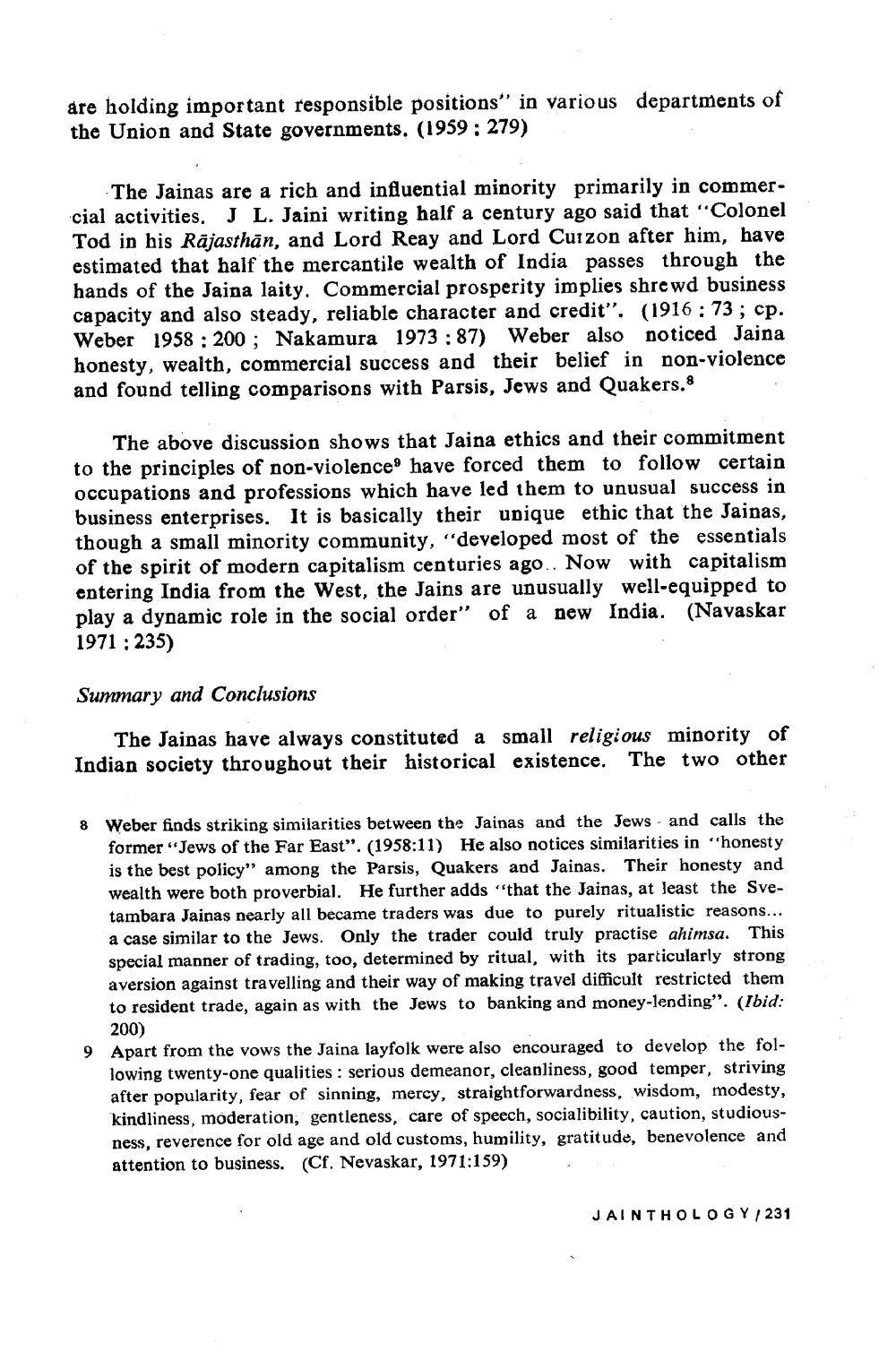________________
are holding important responsible positions" in various departments of the Union and State governments. (1959: 279)
The Jainas are a rich and influential minority primarily in commercial activities. J L. Jaini writing half a century ago said that "Colonel Tod in his Rajasthān, and Lord Reay and Lord Curzon after him, have estimated that half the mercantile wealth of India passes through the hands of the Jaina laity. Commercial prosperity implies shrewd business capacity and also steady, reliable character and credit". (1916 : 73; cp. Weber 1958 : 200; Nakamura 1973:87) Weber also noticed Jajna honesty, wealth, commercial success and their belief in non-violence and found telling comparisons with Parsis, Jews and Quakers. 8
The above discussion shows that Jaina ethics and their commitment to the principles of non-violence' have forced them to follow certain occupations and professions which have led them to unusual success in business enterprises. It is basically their unique ethic that the Jainas, though a small minority community, "developed most of the essentials of the spirit of modern capitalism centuries ago. Now with capitalism entering India from the West, the Jains are unusually well-equipped to play a dynamic role in the social order" of a new India. (Navaskar 1971 : 235)
Summary and Conclusions
The Jainas have always constituted a small religious minority of Indian society throughout their historical existence. The two other
8 Weber finds striking similarities between the Jainas and the Jews - and calls the
former "Jews of the Far East". (1958:11) He also notices similarities in 'honesty is the best policy” among the Parsis, Quakers and Jainas. Their honesty and wealth were both proverbial. He further adds that the Jainas, at least the Svetambara Jainas nearly all became traders was due to purely ritualistic reasons... a case similar to the Jews. Only the trader could truly practise ahimsa. This special manner of trading, too, determined by ritual, with its particularly strong aversion against travelling and their way of making travel difficult restricted them to resident trade, again as with the Jews to banking and money-lending". (Ibid: 200) Apart from the vows the Jaina layfolk were also encouraged to develop the following twenty-one qualities : serious demeanor, cleanliness, good temper, striving after popularity, fear of sinning, mercy, straightforwardness, wisdom, modesty, kindliness, moderation, gentleness, care of speech, socialibility, caution, studiousness, reverence for old age and old customs, humility, gratitude, benevolence and attention to business. (Cf. Nevaskar, 1971:159)
JAINTHOLOGY, 231




